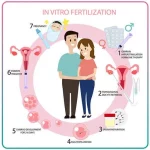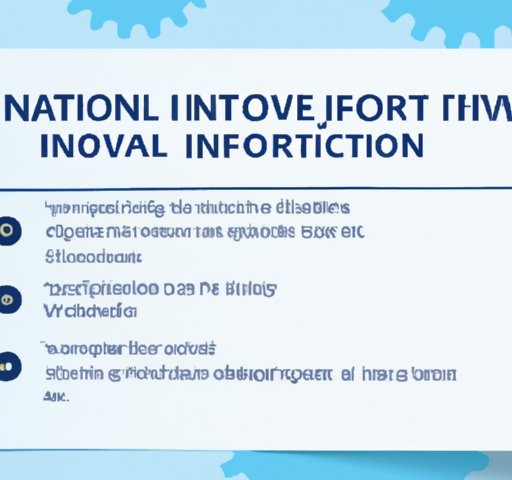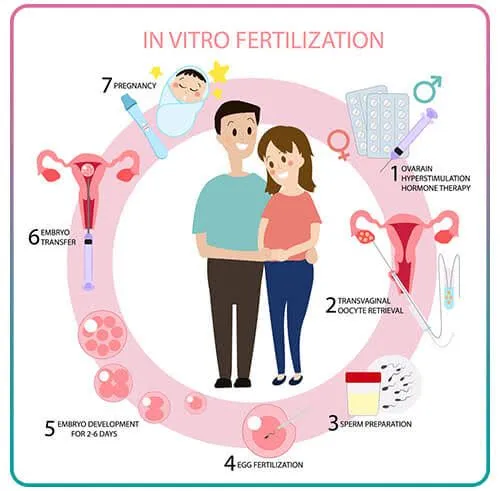
Does IVF Work? Your Guide to Understanding In Vitro Fertilization Success
April 19, 2025
How Many Weeks Pregnant Am I After IVF?
April 19, 2025How Much Does IVF Cost in Pennsylvania?

How Much Does IVF Cost in Pennsylvania?
Starting a family can feel like a dream come true, but for many, the path to parenthood isn’t always straightforward. If you’re in Pennsylvania and considering in vitro fertilization (IVF), you’re likely wondering about the cost—and rightfully so. IVF is a life-changing option for many, yet the price tag can seem overwhelming at first glance. Don’t worry, though—I’m here to break it all down for you in a way that’s easy to digest, with practical tips, fresh insights, and a few surprises along the way. Whether you’re just exploring your options or ready to take the next step, this guide will give you a clear picture of what to expect financially in the Keystone State as of April 2025.
The Big Picture: What IVF Costs in Pennsylvania
IVF isn’t a one-size-fits-all process, and neither is its price. Across Pennsylvania, the cost of a single IVF cycle typically ranges from $10,000 to $25,000, depending on where you go, what services you need, and whether insurance lends a hand. That’s a broad range, I know, but it reflects the reality of personalized fertility care. For example, a clinic in Philadelphia might charge more than one in a smaller town like Lancaster due to higher overhead costs, while extra treatments like genetic testing can push the total up.
Nationally, the average cost of a basic IVF cycle hovers around $12,000 to $15,000, according to the American Society for Reproductive Medicine (ASRM). In Pennsylvania, though, you’re more likely to see prices starting at $10,000 for a no-frills cycle and climbing higher with add-ons. Why the variation? It’s all about location, clinic reputation, and the specifics of your treatment plan. Let’s dig into what drives these numbers so you can plan smarter.
What’s Included in an IVF Cycle?
When you hear “IVF cycle,” it’s not just one simple procedure. It’s a series of steps, each with its own price tag. Here’s what you’re typically paying for:
- Monitoring: Regular ultrasounds and blood tests to track your progress (about $1,000-$2,000).
- Medications: Hormones to stimulate egg production, which can range from $3,000 to $7,000 depending on your needs.
- Egg Retrieval: A minor surgery to collect eggs, usually $3,000-$5,000.
- Fertilization and Embryo Culture: Lab work to create and grow embryos ($2,000-$4,000).
- Embryo Transfer: Placing the embryo in the uterus ($1,500-$3,000).
That’s the baseline. But here’s the catch: many clinics quote a “base fee” (say, $10,000) that covers only some of these steps. Medications, for instance, are often billed separately, and that’s where costs can sneak up on you. In Pennsylvania, a full cycle with meds included often lands between $15,000 and $20,000 at places like Main Line Fertility or Penn Fertility Care—pretty standard for 2025.
A Real-World Example
Take Sarah, a 34-year-old from Pittsburgh. Her clinic quoted $12,000 for a basic IVF cycle. But after adding $4,500 in medications and $1,200 for freezing extra embryos, her total hit $17,700. Stories like hers show why it’s crucial to ask clinics for an all-in estimate upfront.
Factors That Affect IVF Costs in Pennsylvania
No two IVF journeys are identical, and the price reflects that. Here’s what can shift your bill up or down:
1. Location Within Pennsylvania
Urban hubs like Philadelphia or Pittsburgh tend to have higher costs—think $15,000-$20,000 per cycle—due to demand and clinic overhead. Smaller cities like Harrisburg or Erie might offer cycles closer to $10,000-$14,000. Rural areas could be even cheaper, but options are limited.
2. Clinic Reputation and Technology
Top-tier clinics like the University of Pennsylvania’s Penn Fertility Care often charge a premium for their expertise and cutting-edge tech. A cycle there might start at $13,000 before meds, while a smaller practice could be $2,000-$3,000 less. You’re paying for experience, success rates, and sometimes fancier labs.
3. Your Unique Needs
- Age: Older patients (over 35) might need more meds or cycles, bumping costs up.
- Diagnosis: Issues like blocked tubes or low sperm count could require extras like ICSI (intracytoplasmic sperm injection), adding $1,000-$2,000.
- Add-Ons: Genetic testing (PGT) or donor eggs can tack on $3,000-$15,000.
4. Insurance Coverage (or Lack Thereof)
Pennsylvania doesn’t mandate insurance coverage for IVF, unlike states like New Jersey. If your employer offers fertility benefits, you might get partial coverage—say, $5,000 toward a cycle. Otherwise, it’s all out-of-pocket. More on this later!
Pennsylvania vs. the National Average: How Do We Stack Up?
Nationally, IVF costs average $21,600 per cycle with meds, per a 2023 Carrot Fertility report. In Pennsylvania, we’re slightly below that at $15,000-$20,000 for a full cycle. Why the discount? It’s partly due to competition among clinics and a lower cost of living compared to states like California ($25,000+) or New York ($22,000+). But don’t celebrate too soon—multiple cycles (often 2-3) are common, so total costs can still climb to $40,000-$60,000 for many families.
Quick Comparison Table
| Location | Avg. Cost per Cycle (with Meds) | Notes |
|---|---|---|
| Pennsylvania | $15,000-$20,000 | Varies by city, clinic |
| National Average | $21,600 | Includes add-ons |
| California | $25,000-$30,000 | Higher living costs |
| New Jersey | $18,000-$22,000 | Some insurance mandates |
Hidden Costs You Might Not Expect
Beyond the basics, there are sneaky expenses that can catch you off guard. Here’s what to watch for:
- Pre-IVF Testing: Bloodwork, semen analysis, and ultrasounds can cost $500-$1,500 before you even start.
- Embryo Storage: Freezing extras runs $300-$600 per year in PA.
- Travel: If your clinic’s far, gas or lodging adds up—especially for Philly or Pittsburgh trips.
- Failed Cycles: Success isn’t guaranteed. About 30%-40% of cycles lead to a live birth for women under 35 (ASRM data), meaning you might need $15,000+ for round two.
Interactive Quiz: Are You Ready for Hidden Costs?
Answer these quick questions to see if you’ve thought it all through:
- Have you budgeted for medications separately? (Yes/No)
- Do you live near your clinic, or will travel be a factor? (Yes/No)
- Are you prepared for a second cycle if needed? (Yes/No)
If you answered “No” to any, keep reading for tips to plan ahead!
Insurance and IVF in Pennsylvania: What’s the Deal?
Here’s the tough news: Pennsylvania doesn’t require private insurance to cover IVF as of April 2025. That means unless your employer opts in (think big companies like Comcast or UPMC), you’re likely paying full price. Nationally, 19 states have fertility coverage laws, but PA isn’t one of them—yet. There’s buzz about potential legislation, especially after President Trump’s 2025 Executive Order pushing for lower IVF costs, but nothing’s concrete here.
What You Can Do
- Check Your Plan: Call your insurer and ask about fertility benefits. Some cover diagnostics (e.g., $500 for tests) even if IVF’s excluded.
- Employer Perks: Companies with 50+ employees might offer $5,000-$10,000 in coverage. Ask HR!
- Flexible Spending Accounts (FSAs): Use pre-tax dollars to save 20%-30% on costs.
A Silver Lining?
The Trump Executive Order (Feb 2025) aims to reduce out-of-pocket IVF expenses nationwide. While it’s too early for PA-specific changes, it could mean federal tax credits or subsidies by 2026. Stay tuned!
Creative Ways to Lower IVF Costs in Pennsylvania
Sticker shock doesn’t mean IVF’s out of reach. Here are practical, Pennsylvania-friendly ways to save:
1. Shop Around
Compare clinics! Main Line Fertility in Bryn Mawr offers financing plans, while RMA of Philadelphia has multi-cycle discounts (e.g., $25,000 for 2 cycles). Call 3-5 places for quotes.
2. Mini-IVF: A Cheaper Alternative
This uses fewer meds, cutting costs to $5,000-$7,000 per cycle. Success rates are lower (15%-20% vs. 30%-40%), but it’s gentler and wallet-friendly. Ask your doc if it’s an option.
3. Grants and Nonprofits
- Baby Quest Foundation: Offers up to $15,000 for PA residents.
- Starfish Fertility: Local aid for Philly-area couples.
Apply early—these fill up fast!
4. Financing Plans
Many PA clinics partner with lenders like Prosper or CapexMD. You might pay $300/month instead of $15,000 upfront. Check interest rates, though—some hit 10%+.
5. Clinical Trials
Penn Medicine occasionally runs IVF studies with free or discounted treatment. Search ClinicalTrials.gov for “IVF Pennsylvania” to find openings.
A Deeper Dive: What Success Rates Mean for Your Wallet
IVF isn’t just about cost—it’s about value. Success rates matter because a failed cycle means spending again. In Pennsylvania, top clinics like Penn Fertility Care report 35%-45% live birth rates per cycle for women under 35 (CDC 2023 data). Smaller clinics might dip to 25%-30%. Spending $20,000 at a high-success clinic could save you $15,000 on a second try elsewhere.
Mini Case Study: Jess’s Journey
Jess, 29, from Harrisburg, chose a $12,000 cycle at a mid-tier clinic with a 28% success rate. It failed. Her second attempt at Penn ($18,000, 42% success) worked. Total spent: $30,000. If she’d started at Penn, she might’ve saved $12,000. Lesson? Factor in success rates, not just price.
The Emotional Cost: Beyond Dollars and Cents
Money’s only half the story. IVF can be an emotional rollercoaster—hope, stress, and sometimes heartbreak. In Pennsylvania, support groups like RESOLVE’s Philly chapter offer free meetups. Online forums (trending on X in 2025) show couples valuing mental health resources as much as financial aid. Budgeting for therapy ($50-$100/session) or a yoga class ($15) can keep you grounded.
Checklist: Emotional Prep for IVF
✔️ Join a local support group (search “PA fertility support”).
✔️ Schedule downtime after big steps like retrieval.
❌ Don’t bottle up stress—talk to someone.
❌ Avoid comparing your journey to others’.
New in 2025: Trends Shaping IVF Costs in PA
IVF’s evolving, and 2025 brings fresh angles to the cost convo. Here’s what’s new:
1. At-Home Monitoring Kits
Some PA clinics now offer kits to track hormones at home, cutting monitoring costs by $500-$1,000. Early adopters like Main Line Fertility say it’s a game-changer for rural patients.
2. AI in Embryo Selection
AI tools, used by places like RMA, boost success rates by picking the best embryos. It’s $500-$1,000 extra, but could mean fewer cycles. A 2024 study in Fertility and Sterility found a 10% success bump with AI—worth it?
3. Micro-Dosing Protocols
For low responders, micro-dosing meds (e.g., $2,000 vs. $5,000) is gaining traction. Clinics in Pittsburgh are pioneering this, per X chatter. It’s not for everyone, but ask your doc.
Your IVF Budget: A Step-by-Step Plan
Ready to crunch numbers? Here’s how to build a realistic IVF budget in Pennsylvania:
- Get a Quote: Call your clinic for a full breakdown (base fee + meds + extras).
- Add a Buffer: Tack on 20% for surprises (e.g., $15,000 becomes $18,000).
- Check Insurance: Confirm coverage with your provider.
- Explore Savings: Apply for grants or financing.
- Plan for Multiples: Budget $15,000-$20,000 extra if you might need another round.
Sample Budget Table
| Item | Low-End Cost | High-End Cost | Notes |
|---|---|---|---|
| Base Cycle | $10,000 | $15,000 | Clinic-dependent |
| Medications | $3,000 | $7,000 | Varies by dosage |
| Genetic Testing | $0 | $5,000 | Optional |
| Embryo Freezing | $300 | $600 | Annual fee |
| Total | $13,300 | $27,600 | Single cycle estimate |
Poll: What’s Your Biggest IVF Concern?
Weigh in below to see what others think—it takes 10 seconds!
- A) Cost of treatment
- B) Success rates
- C) Emotional toll
- D) Finding the right clinic
(Results show up after you vote!)
Unique Insights: What’s Missing from Other Guides
Most articles stop at costs and insurance, but there’s more to uncover. Here are three angles you won’t find everywhere:
1. The Rural IVF Gap
In Pennsylvania’s rural counties (e.g., Tioga, Potter), clinics are scarce. Couples drive 2-3 hours to Pittsburgh or Philly, adding $500-$1,000 in travel per cycle. Telemedicine’s helping—Penn’s virtual consults cut initial costs by $200—but egg retrieval still means a trek. If you’re rural, factor this in.
2. Second-Hand Meds: A Hidden Market
Some PA patients buy unused IVF meds from others online (think Facebook groups). A $5,000 stash might cost $2,000 this way. It’s legal but risky—expired or mishandled drugs can fail. Clinics warn against it, but X posts show it’s growing in 2025. Proceed with caution.
3. Tax Deductions You’re Missing
Medical expenses over 7.5% of your adjusted gross income are deductible (IRS rules). For a $50,000 income, that’s $3,750—meaning a $15,000 IVF cycle could save you $2,000+ on taxes. Few guides mention this, but it’s a real win for PA families.
FAQs: Your Top Questions Answered
How Many Cycles Will I Need?
For women under 35, 60%-70% achieve a live birth within 3 cycles (ASRM). Over 40? It might take 4-5. Budget $40,000-$60,000 total if you’re in it for the long haul.
Can I Negotiate with Clinics?
Yes! Some PA practices offer 5%-10% off for upfront payment. It’s not advertised, so ask.
What If I Can’t Afford It?
Beyond grants, consider egg sharing (donate extras for a discount) or medical tourism—Mexico’s $5,000 cycles tempt some Pennsylvanians.
Final Thoughts: Making IVF Work for You
IVF in Pennsylvania isn’t cheap, but it’s not impossible either. With costs ranging from $10,000 to $25,000 per cycle, the key is planning—know your clinic, explore savings, and brace for extras. Whether you’re in Philly’s hustle or Erie’s quiet, options like mini-IVF, grants, or even tax breaks can lighten the load. And with 2025 bringing innovations like AI and at-home kits, there’s hope for more affordable, effective care ahead.
Parenthood’s worth it, right? Take a deep breath, grab a notebook, and start mapping your journey. You’ve got this—and I’m rooting for you every step of the way.

